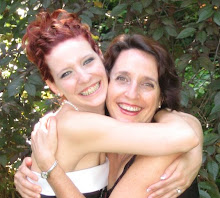"Politically correct" rhetoric is no substitute for actually experiencing the richness of friends who come from different backgrounds, lifestyles, and beliefs. Rather than providing the same comfortable hues we're accustomed to, friends that are different from us add the most brilliant colors and textures to the tapestry of our lives. I believe that just about all of us could use more friends whose lifestyles are so different from ours that we haven't yet learned whether they share our most important values, activities, and interests. We've hesitated to embrace them because of that which makes us visibly different. We are all the poorer for it.
Being young and artistic, I wished for any race but my boring vanilla. I traveled a lot as a child and was exposed to a wide variety of people from a very young age. I was enchanted by the amazing varieties in humankind—from everyday behaviors and tastes in clothes and decor, to the very look of our skin and texture of our hair. When I was nine years old, in 1965, my mother was the first white school teacher in a black elementary school in the state of Florida. She took us to school one day for a visit. When I saw that sea of happy, brown faces, I wanted to fit in.
In 1967, when I was eleven, we lived in New Jersey, but we took our summer vacation at Koinonia Farm in Americus, Georgia. Driving around the area, I saw poor black families living under corrugated metal lean-tos with no walls, no toilets, and no electricity. Koinonia had a housing cooperative that built cinder block houses to shelter some of those families, and I saw one being built. I also ducked under a table in the Koinonia dining hall with everyone else, when someone threw a brick through the window. My summer vacation was full of experiences that have stayed with me all my life. Years later I learned that Habitat for Humanity grew out of Koinonia Farm, just a year or so later.
In middle school in Montclair, New Jersey, we went to school with kids from all over town and made friends with kids from other neighborhoods. It was great. I loved it. During high school I attended a black church and we went on the summer youth retreat with our sister church from Harlem, where the girls my age had never met a white person. They’d seen them, but never talked to one. We learned a lot from each other living in close quarters, braiding each other's hair and talking into the night.
My mind was expanded with all of these childhood adventures. I'm so grateful to have touched deeply fulfilling brotherly love—only possible with awareness and empathy, and only fully realized with acts of kindness. As an adult I want this personal knowledge of “others” for everyone willing to invest the effort. It truly makes life better.
Many are raised to be afraid of those that are different from them—whether the difference is race, religion or sexual orientation. Fear keeps you from learning about others, and ignorance is your worst enemy. Vanquish ignorance with familiarity. Go out of your way to make friends that are not like you. It might take some effort. It may not be natural where you live, so it might start out a little awkwardly, but you’ll get past that quickly and the rewards will last a lifetime. Help to end this epidemic of ignorance by sharing this message with your friends and family. One-by-one we can make a difference. Little-by-little, love can overcome fear.
How to Build a Bridge
Only love can build a bridge that joins people across their differences, in spite of their ignorant backgrounds and the contrary examples of parents. We can break down even big barriers to love and acceptance in our towns, even in our country. But barriers will only come down when simple, small bridges are built between two or three people, one little bridge at a time.
There's no easy cure, like a blog to read or a sermon to hear. It takes many small, personal, tangible experiences over time to combat ignorance. Reach out. Invite someone different to your home. Share a meal. Accept an invitation to their home. This is where the true differences between you will be highlighted... and where your bridge across those differences will be built. I challenge you to accept this as a goal: befriend one different person before your next birthday. Invite them to your birthday celebration.
Just last week I was fortunate enough to sit down next to a perfect stranger who, after just a few moments of casual conversation, felt like an old friend. If I had avoided being friendly because she had darker skin, I would have lost the potential for a new friend. Opening up... opened up a sweet door.
Speaking Spanish has also opened my life's door to many friends. I’ve been able to meet brilliant, creative people—people from whom I’ve learned some of my most important lessons. My life would be so different, and so much poorer, without their influence.
So many wonderful, loving people in the world are different from you, and live differently than the lifestyle you live. Make the effort to learn about others. You’ll fear less, the whole world will open up with its wonderful possibilities for love and friendship and, perhaps to your surprise, you’ll be much happier in the areas of life that matter most. Your singular joy at connecting with those who are different, building bridges of love one by one, will change your world... and ours.




